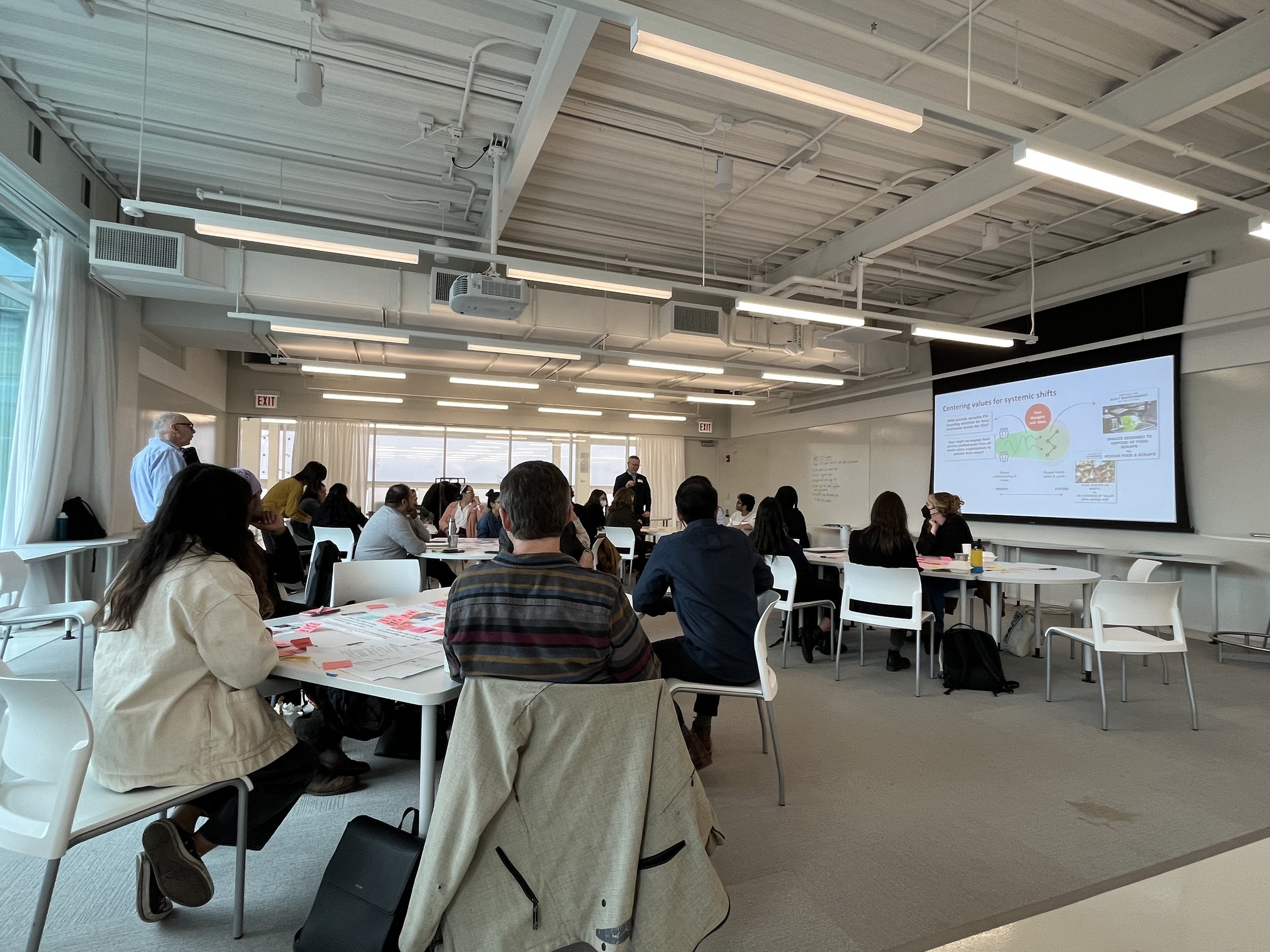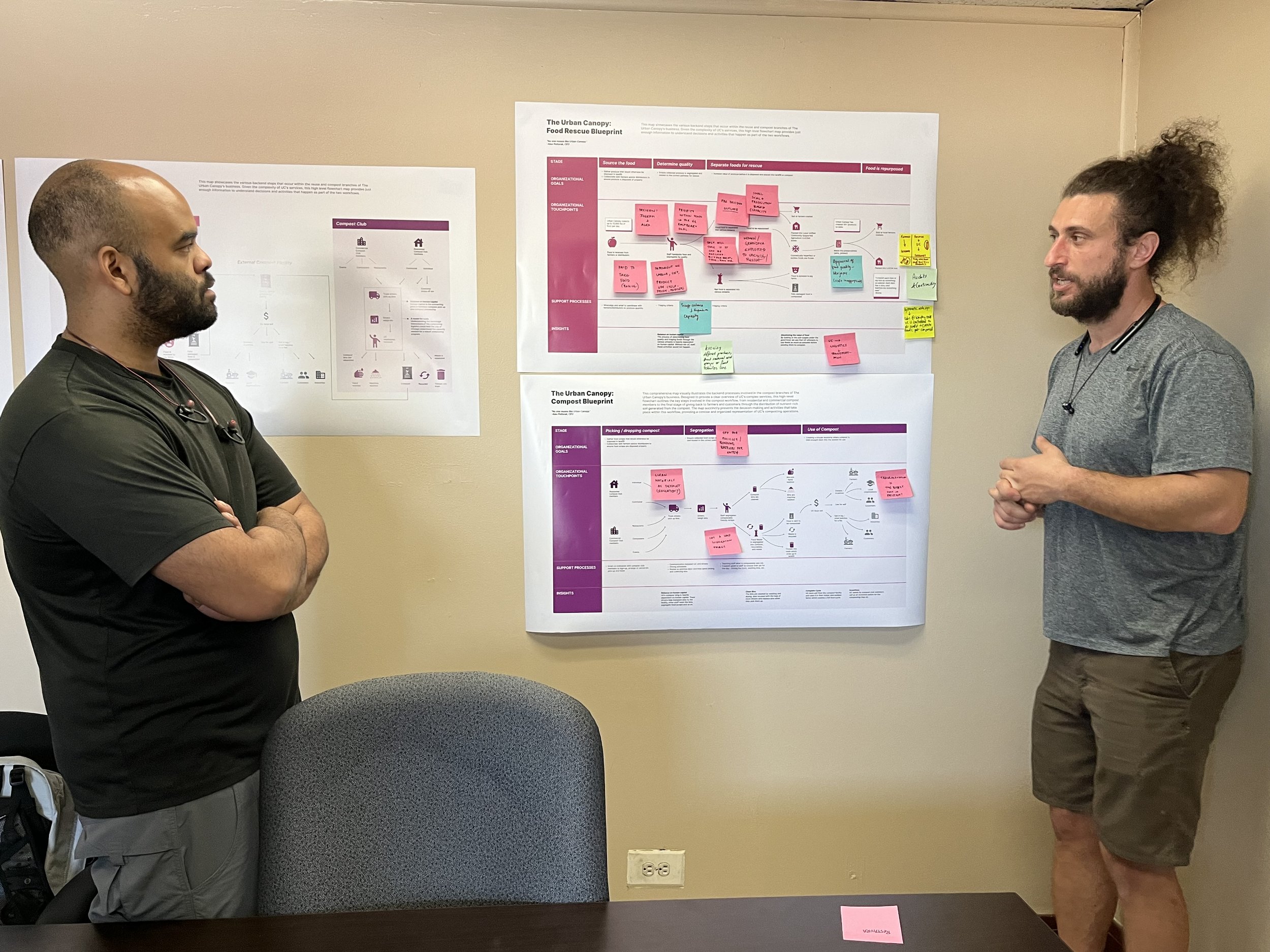NAVIGATING CHICAGO’S FOOD WASTE SYSTEM
Client
City of Chicago
The Urban Canopy
Year
2023
Time Frame
14 weeks
Role
Student Researcher & Designer
Context
In Spring 2023, the Design for Climate Leadership course at the Institute of Design focused on tackling food waste prevention in Chicago.
40% of food produced in the US goes to waste, amounting to 55 million pounds monthly in Chicago.
Problem
The massive food waste in Chicago lacks coordinated efforts and systemic solutions, leading to environmental, social, and economic implications.
To address this, collaboration among stakeholders from various sectors was essential.
Approach
The project was split into 2 parts:
First, I worked closely with The Urban Canopy, a composting company, based out of Chicago. I conducted research, and primary interviews and generated system maps to understand their business processes and improve organizational communication. As a team, we learned about the food waste scenario of Chicago through The Urban Canopy.
Second, as a team, we mapped the current food flows and frictions from the perspectives of different stakeholders with a focus on food waste reduction, rescue, and recycling in the food service industry.
In a co-design workshop, I facilitated some stakeholders to identify some of the priorities and barriers for mobilizing efforts city-wide for the prevention of wasted food and envisioned pathways for a more circular food system grounded in the ongoing efforts of stakeholders.
Impact
We produced recommendations and learnings to inform policy and action in Chicago regarding food waste prevention. Stakeholder feedback highlighted the clarity and insight provided by our recommendations, indicating the potential for systemic change and collaborative efforts to tackle food waste effectively.
“Conceptualizing what we do gets overwhelming very quickly. These visualization maps are super helpful. We will use these and post them on our website soon”
Reflections
The Urban Canopy founders Alex and Joseph in a workshop session with us.
“These maps will help us convey the value we are trying to add. It will be helpful to show it to our crew, clients and folks driven by our mission.”
I learned the value of collaboration and communication with stakeholders across different sectors. The experience reinforced the transformative potential of co-design efforts in addressing societal challenges.
The importance of patience for iterations in understanding complex systems is crucial to dive deep into the project. It took my two teammates and me a couple of meetings and re-iterations with the Urban Canopy team to completely understand their business and multiple smaller systems within their business and the food system to be able to create system maps.
Conclusion
Through collaborative efforts and engagement with stakeholders, we delved into the complexities of the food system, identified opportunities for intervention, and fostered a culture of collaboration and innovation.
The impact of our work is reflected in the clarity and insight provided to stakeholders, signaling progress towards a more sustainable and resilient food system in Chicago.
This experience underscored the importance of collaboration, patience, and co-design in driving positive change and addressing complex societal challenges.














